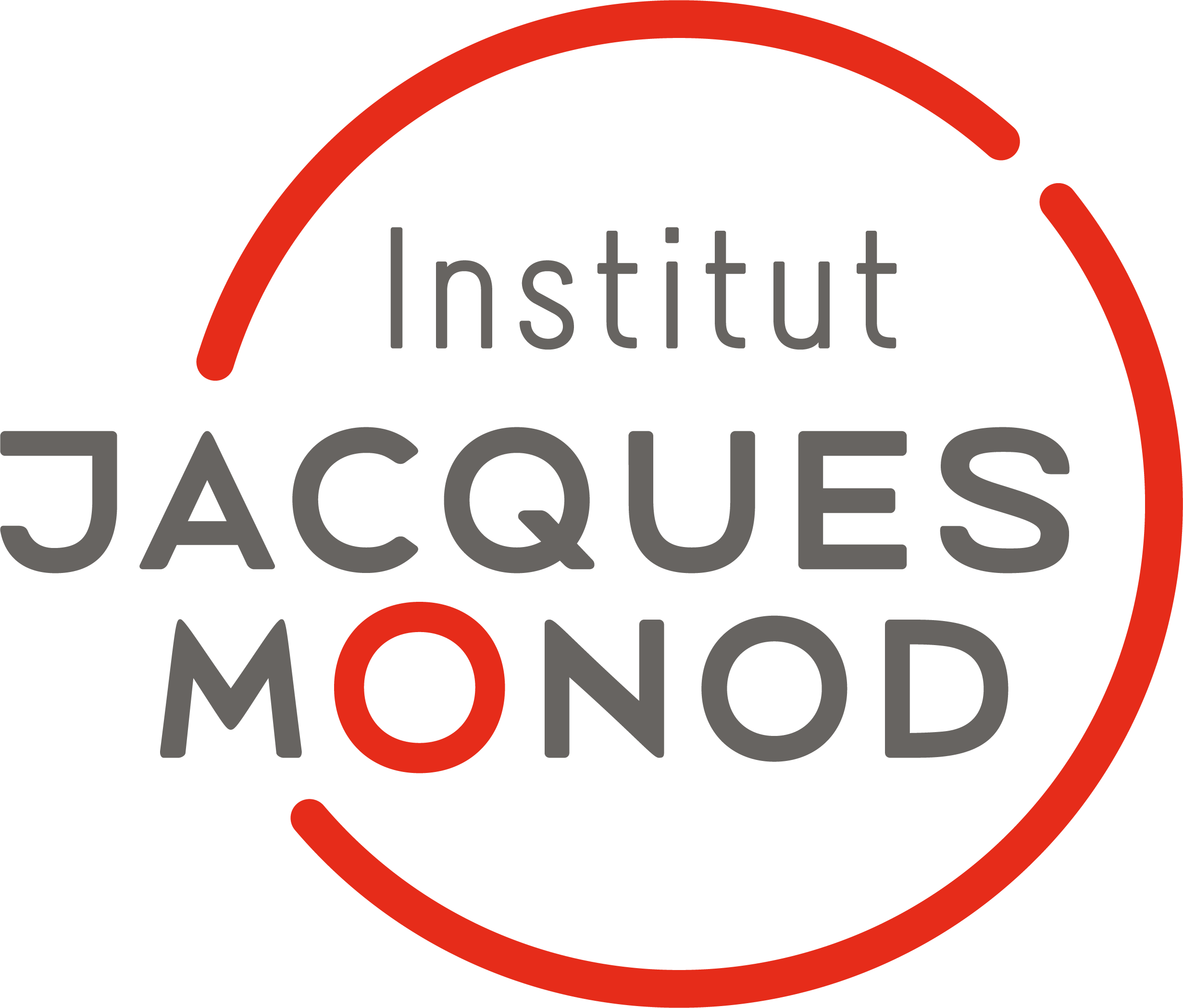Direction Advisory Board
Jean-Michel Camadro is a CNRS research director. He leads the team “Mitochondria, Metals and Oxidative Stress” and is the scientific coordinator of the ProteoSeine@IJM proteomics platform.
Jean-Michel CAMADRO was trained as a biochemist at the University of Paris 7 where he obtained a PhD in Biochemistry of Membrane Systems in 1982, and a Doctorat d’Etat ès Sciences in 1989. After a post-doctoral fellowship at the New York Medical College (1983-84) in the Department of Medicine of Dr. Richard D. Levere, where he was interested in iron metabolism in humans, he joined the CNRS in 1984 in the ER186 directed by Prof. Pierre Labbe, a team that will be integrated into the Institut Jacques Monod in 1989. His research focused on the structure/function relationships of soluble and membrane proteins involved in the heme biosynthesis pathway and iron metabolism in different biological systems. He became research director in 1997 and team leader at the IJM in 1998. In 2000, he created the first structure that will become the proteomic platform of the IJM, for which he is currently responsible for scientific coordination. He has held various positions at the IJM (member of the Laboratory Council, head of department), at the University of Paris Diderot (president of the scientific council of the Life Sciences Department) and at the ComUE Sorbonne Paris Cité (head of the Life Sciences and Health cluster). He is a member of the International Scientific Advisory Board of Biocev in Prague, Czech Republic.
Sandra DUHARCOURT is a Research Director at CNRS. After a PhD at Sorbonne Université and a postdoc at the Fred Hutchinson Cancer Research Center (Seattle, USA), she became a CNRS fellow and created her own research group at the Institut Jacques Monod in 2011. Her lab focused on the fundamental principles that govern chromosome dynamics in eukaryotes, and studies a remarkable process of programmed DNA elimination that occurs during development in the unicellular eukaryote Paramecium. Her research aims at identifying all eliminated sequences and describing their evolutionary trajectories; deciphering the underlying mechanisms of programmed DNA elimination in the context of chromatin; and understanding the possible functions of this massive genome reorganization.
René Marc MEGE is CNRS Research Director. He is co-heading with Benoit Ladoux the interdisciplinary Biology/Physics team “Cell Adhesion & Mechanics” and co-director of ImagoSeine cellular imaging platform.
René Marc MEGE was trained as a Biochemist in the University of Bordeaux, obtained a PhD in Biotechnology, Enzymology and Bioconversion at the University of Technology of Compiègne en 1986. He then moved to Cell and Developmental Biology and spend three years at the Rockefeller University (New York) in the lab of the Nobel Prize Gerald M Edelman where he specialized in cell-cell interaction and adhesion. He was hired at CNRS in 1991 at the Institut du Fer à Moulin (INSERM) where he worked on cell adhesion and neuromuscular development, at the interface between cell biology and neuroscience, became group leader in 1996, and research director in 2005. He has been Assistant Professor at Ecole Polytechnique from 2003 to 2017. He joined IJM with is actual position in 2013.
Lionel PINTARD is CNRS research director. He leads the “Cell cycle & Development” team and is the scientific correspondent of the Jacques Monod Institute within the Labex “WHO AM I”. Lionel PINTARD was trained in genetics and biochemistry at the University of Montpellier. During his PhD, obtained in 2000, he identified a family of 2’O RNA methylases in the yeast S. cerevisiae. At the end of his PhD work, he joined the laboratory of Matthias Peter at ISREC in Lausanne and then at ETH in Zurich where he studied the role of the ubiquitin proteolytic system in cell cycle regulation in the nematode C. elegans. He then did a second post-doctoral training in the laboratory of Mike Tyers in Toronto where he developed proteomic approaches in C. elegans. He was recruited at the CNRS in 2006 and joined the Institut Jacques Monod in 2007 to start his own research program with the support of an ATIP funding. He was awarded the bronze medal of the CNRS and became director of research in 2011. Lionel Pintard’s research focuses on the control mechanisms of cell division.
Marie-Noëlle PRIOLEAU has been leading the “Chromosomal Domains and Replication” team at the Institut Jacques Monod since 2005. MNP was trained in molecular and cell biology at the Ecole Normale Supérieure of Lyon and obtained her PhD in molecular and cell biology in 1994 at the Pierre and Marie Curie University. She completed a three-year post-doc in the laboratory of Gary Felsenfeld (NIH, Bethesda, USA) on the role of genome organization into chromatin domains in the establishment of the expression program during erythropoiesis. She obtained a position at the CNRS in 1998 and was recruited research director at Inserm in 2010. She turned to the study of the regulation of DNA replication in vertebrates and developed genetic and genomic approaches. Her laboratory established the first large-scale map of replication origins in humans and thus defined their general properties and notably their strong association with transcriptional regulatory elements such as promoters and enhancers.
Jean-Marc VERBAVATZ is Professor of Cell Biology at Université Paris Cité. He is co-directing the “Membrane Dynamics and Intracellular Trafficking” team with Cathy Jackson and co-directs the Imagoseine imaging platform with René-Marc Mège. He was trained as an engineer from the Ecole Centrale de Paris, and obtained a PhD in cell biology from Université Pierre and Marie Curie in 1990 for his work on water channels, carried out at the CEA in Saclay. After a 3-year post-doct in the laboratory of Dennis Brown at the Massachusets General Hospital (Harvard Medical School) in Boston, he was recruited in 1994 at the CEA de Saclay in the Department of Cellular and Molecular Biology, where he continued his work on aquaporins. In 2009, he joined the Max Planck Institute for Molecular Cell Biology and Genetics in Dresden, to develop electron microscopy approaches for cell biology. In 2013 he became professor of cell biology and team leader at the Jacques Monod Institute in 2015. His current projects focus on membrane trafficking and intracellular trafficking.

